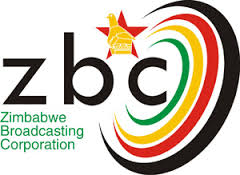Story by Wellington Makonese
Zimbabwe has been given credit for implementing a robust drive to industrialise the economy while leveraging on research and investments in institutions of higher and tertiary education.
Translational Scientists Without Borders and officials from the African Institute of Biomedical Science are in Victoria falls with the view to synergise biomedical science research into lifesaving solutions.
It is the pace at which the nation is moving in embracing technological innovations and implementing the Education 5.0 model that has charmed the visiting experts.
“I think what we have seen working with the locals is quite impressive. The development of innovation hubs in that time period is faster than we can. When I came here I was so humbled, the amount of knowledge and ideas is way beyond many areas we have been in. We have then decided to focus on Zimbabwe; it’s a fertile ground to build industry. All we heard is that not only infrastructure, but funding is so humbling,” co-founder of the SPARK Stanford Model for Academia Driven Drug Discovery, Professor Daria Mochly-Rosen said.
Founder and CEO African Institute of Biomedical Science and Technology, Professor Collen Masimirembwa also said, “I believe what we have achieved can be packaged and shared with the rest of Africa as a patent that brings solutions to our own problems which is the product of education 5.0 model.”
Government is keen on harnessing local and international expertise in pushing the industrialisation agenda driven by the correlation between academia and industry.
“Our design is based on putting ideas into action, hence this platform is critical in enabling The Chimurenga Chepfungwa (Struggle of the Minds) as the President often says. We have seen the establishment of medical facilities at institutions of higher learning to provide solutions that affect society. We were at the forefront in fighting COVID-19 which resulted in reduced COVID cases,” explained the Minister of Higher and Tertiary Education, Innovation, Science and Technology Development, Professor Amon Murwira.
Another Co-founder of The SPARK Stanford Model for Academia Driven Drug Discovery, Professor Kevin Grimes said, “Most of what we get from academia is basic science which will be enhanced through the industry. The symbiotic relationship will help the people of Zimbabwe and the rest of Africa in having homegrown solutions.”
The national critical skills audit carried out before the implementation of the education 5.0 model indicated an average skills deficit of 61.75 per cent in sectors such as engineering and technology, natural and applied Sciences, Agriculture, medicine and health despite the country having a high literacy rate.
As a stamp of approval to enhance productive learning, cabinet this week adopted the Technical and Vocational Education and Training (TVET) policy, which is the first technical education-related policy since independence.




